Nigeria
Survivors of human trafficking marched alongside activists through the streets of Nigeria's capital Abuja on Thursday as part of a campaign to raise awareness of the issue.
The march, organised by Nigeria's National Agency for Prohibition of Trafficking in Persons (NAPTIP), also marked the United Nations' July 30 "World Day against trafficking in Persons".
The UN and others hope the survivors' stories can help protect their compatriots from organised gangs operating a massively lucrative system worldwide.
Activists say many victims of human trafficking face ignorance or misunderstanding in their attempts to get help and have had traumatic post-rescue experiences and face stigma.
The issue of human trafficking is often hidden and accurate figures on the numbers trafficked each year are elusive.
In 2018, around 50,000 human trafficking victims were detected and reported by 148 countries, according to the United Nations.
Victims often end up in brothels, working as domestic servants or engaged in heavy manual labour and are traded around the world and across borders.
Those trafficked from Nigeria are often lured with the prospect of good jobs abroad, but find themselves trapped with concocted debts by the traffickers.
The journey from Nigeria commonly involves a dangerous crossing of the Sahara desert in the back of truck.
Udekwe Kennedy Obinna, one of the survivors attending the Abuja awareness campaign on Thursday, said he was encouraged to try his luck outside Nigeria by his elder brother who is based in Italy.
Obinna described the desert crossing in the back of a Toyota pickup truck, a jouney which proved fatal for others with him.
"Whoever dies is thrown (from the back of trucks), no burial, no funeral," he recalled.
Upon arrival in Libya, he learned he had been 'sold', effectively into slavery by those transporting him.
Josiah Emerole, of Nigeria's National Agency for the Prohibition of Trafficking in Persons is keen that more Nigerians know the true stories of trafficking.
"People are recruited from various places and taken to places where they are made to believe that they are owing somebody," Emerole said.
"They made them to sign like 70,000 dollars, 80,000 euros and all that to say 'that is the amount of money that we used in bringing you and until you pay all that you cannot be free'."
Regina Adeleke, a native of Benue state Nigeria was enticed to quit her job selling noodles and spend her savings on travel by her friend who promised to get her good job in Italy.
"When we got to Tripoli where we reached our madam's house she said that we are going to be doing, that if we do not pay her enough money that she'll take us to a prostitution house where we'll be paying her daily," said Adeleke.
She finally escaped from Libya and was helped to return home by the International Organisation for Migration.






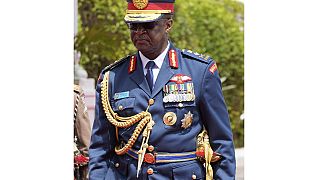
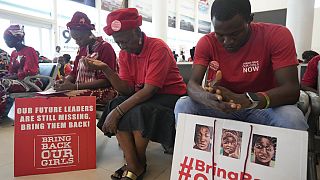
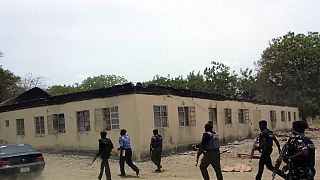
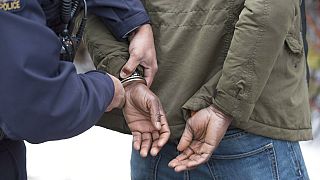
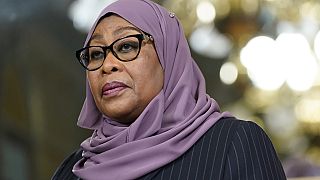
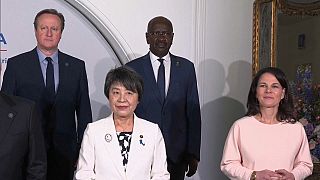
01:19
Haiti: transitional council members announced
01:01
Iran vows 'massive and harsh response' should Israel attack
02:31
Nigeria: 10 years on from Chibok, kidnappings still frequent
01:05
Haiti: police recover cargo ship hijacked by gangs
01:56
Education, child safety under threat in Haiti
01:10
Nigeria: Army to release over 300 suspects cleared of being members of Boko Haram